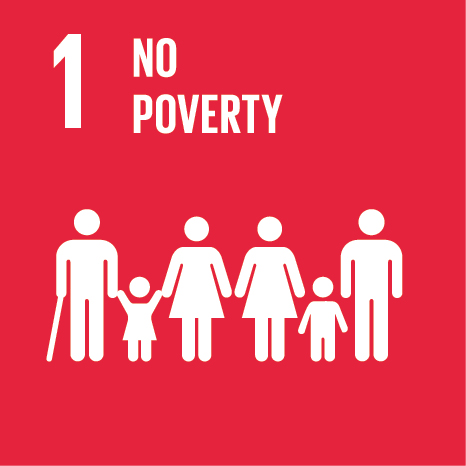Amrita Vishwa Vidyapeetham’s targeted initiatives to admit students from the bottom 20% of household income group directly contribute to three United Nations Sustainable Development Goals (SDGs): SDG 1 – No Poverty, SDG 4 – Quality Education, and SDG 10 – Reduced Inequalities. The university’s multifaceted programs address financial hardship, create pathways for equitable educational access, and reduce social disparities—firmly embedding these global commitments within institutional policy and practice.



India’s bottom 20% of households typically fall within an annual household income under ₹1.2 lakh, significantly below the national Economically Weaker Section (EWS) threshold of ₹8 lakh. These families face compound socio-economic barriers, particularly in rural and tribal areas. To address this, Amrita implements multiple institutional interventions to ensure equitable educational participation.
Amrita follows India’s government reservation framework, ensuring inclusion of SC (15%), ST (7.5%), OBC-NCL (27%), and EWS (10%) categories. These groups represent much of the bottom income quintile. The university integrates equitable admissions and access practices across all campuses.
Source: Amrita Admissions 2024 – Scholarships
Launched with ELGi Equipments Limited, this initiative provides full financial support to 20 meritorious students from economically disadvantaged backgrounds, covering tuition, accommodation, and academic costs, with guaranteed placement opportunities.
Source: Amrita Press – CATALYST Program
Complementary update: Amrita News – CATALYST Launch
Amrita offers 100% tuition waiver through the Chancellor’s Scholarship and 50% waiver through the Meritorious Scholarship, renewable annually for students maintaining a CGPA of 7.0. These scholarships apply across undergraduate, postgraduate, and PhD programs, providing equitable access for students from low-income families.
Source: Amrita Scholarships Portal
Through Amrita’s Education for Life (E4Life) doctoral initiative, students pursuing sustainable development research receive 100% fee waiver, monthly stipend (₹30,000+), research travel funding, and the opportunity to implement real-world sustainability projects in marginalized communities.
Sources:
Amrita’s CREATE Center and STI Hubs (Mizoram, 2024) empower tribal and rural populations through digital literacy, livelihood development, and education access, benefiting over 4,000 direct beneficiaries and 170,000 indirectly.
Source: Amrita STI Hub Initiative
This flagship program supports 101 villages nationally through education, healthcare, and vocational training, giving children and youth in low-income families direct pathways to higher education.
Sources:
Amrita conducts community-based educational inclusion events through AMMACHI Labs and ALARM 2024, which use technology for local education and hygiene awareness among underserved schools and parents.
Sourse : ALARM 2024
Amrita leads multi-campus engagement programs such as the Atal Tinkering Labs (ATL) Sarthi initiative under NITI Aayog, mentoring 67 government schools in Coimbatore. These programs nurture innovation and access among lower-income school students.